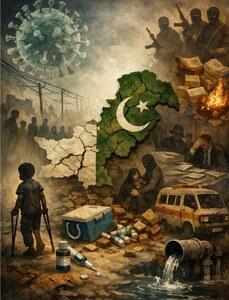THE federation of Pakistan comprises four provinces and four non-provincial units, namely Fata, Northern Areas, which is now Gilgit-Baltistan, Azad Jammu and Kashmir and the Islamabad Capital Territory. The people of Gilgit-Baltistan have been living in a constitutional vacuum for over 64 years. They are neither given representation in the parliament nor a constitutional mandate to the local assembly.
In August 2009, an ad hoc ordinance was introduced by the government of Pakistan called Gilgit-Baltistan Empowerment and Self-governance Order. The Pakistan People’s Party called it a democratic change in Gilgit-Baltistan. I accept that names have been changed: executive to governor and deputy executive to chief minister, Northern Areas to Gilgit-Baltistan. We can’t complain much about that. There is no doubt that ministers have been increased but the budget is the same.
It was a matter of celebration for the people of Gilgit-Baltistan that they are going to have their own governor and chief minister, and that Gilgit-Baltistan has been given the status of so-called province. But, in fact, nothing has been changed at grassroots level. There is no status of a province, no representation either in parliament.
We are neither given any administrative setup like Azad Jammu and Kashmir nor facilities which other provinces enjoy.
This arrangement, on the other hand, increases the confusion of the local people in order to explain the future status of the area and raises numerous questions. Will a citizen of Gilgit-Baltistan be able to be a chief justice in courts of Pakistan including the Supreme Court? Will a citizen of Gilgit-Baltistan be able to be a general in the Pakistan army? Will it be written in syllabus that Pakistan has five provinces?
Three years have passed while the area did not get part in the NFC award, separate quota in competitive examinations and seats in various universities of Pakistan.
Since 1947 the constitutional and administrative status and fundamental human and political rights of the people of Gilgit-Baltistan have been discussed between governments of Pakistan and India. The constitutions of 1956, 1962 and 1973 of Pakistan do not recognise Gilgit-Baltistan as part of Pakistan.
It is clearly explained that Gilgit-Baltistan is not part of Pakistan in term of Article 1 of the Constitution of Pakistan which spells out territorial limits of the country. But democratic and military dictators introduced various governance reforms in the area under different names in order to align it with the emerging economics and political needs of the country.
Now, it is indeed required to clear the ambiguity over Gilgit-Baltistan. Pakistan must change the bureaucratic government in Gilgit-Baltistan and empower the legislative assembly, strengthening its institutional capacity to work for the people rather than for bureaucrats and politicians.
EJAZ KARIM Lahore




























